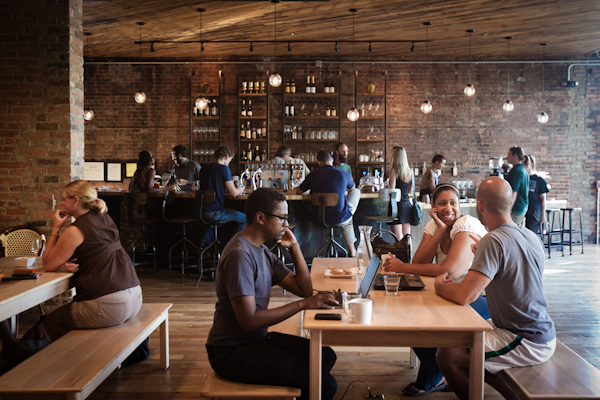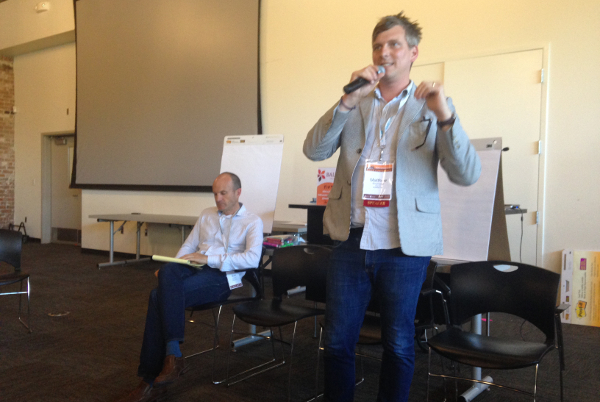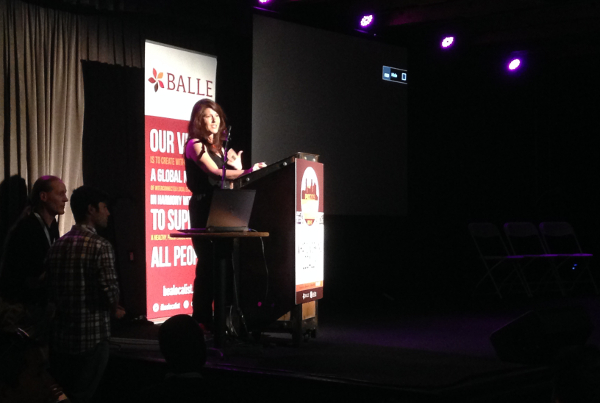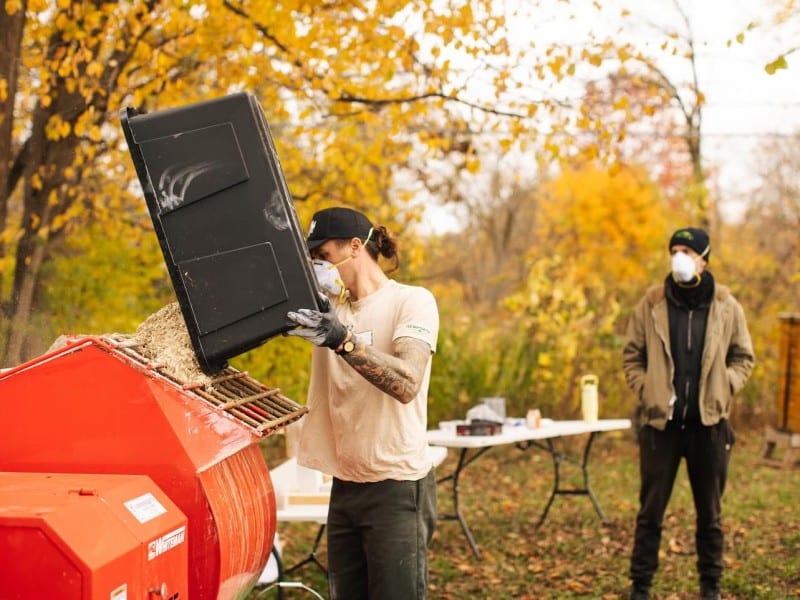So you want to be a localist? Three ways to up your game
Do you believe in the power of small business to restore community? If so, you might be a localist. Here are three simple suggestions for how to contribute to the localist movement in a meaningful, holistic way.
Even though I had long preferred my local coffee shop to Starbucks, I hadn’t heard the term “localist” before encountering BALLE (Business Alliance for Local Living Economies), a network of people dedicated to “restoring community through local businesses.” I attended their conference in Phoenix this year, where I had the opportunity to learn about the localist movement and listen to presentations by founders of pioneering social entrepreneurial companies like Community Sourced Capital and Dankso. I met community organizers focused on local food systems and economic empowerment and chatted with small business owners that understand they are a part of a social movement beyond the doors of their brick and mortar stores.
Here are three insights from the BALLE conference that individuals can use to become part of the localist movement in a holistic and meaningful way:
1. Understand the entrepreneurial journey, even if you don’t open a business
The bulk of my work in Detroit is at Build Institute, an organization that empowers aspiring and established entrepreneurs through classes, workshops, and support by creating an entrepreneurship culture in the community. But the programs Build offers, including its 8-week business plan class, aren’t just for business owners.
What if we expanded the definition of success for an entrepreneurship community beyond the bottom lines of its businesses? What if we looked at successful entrepreneurship as the development of a community of localists consisting of customers, business owners, funders, and leaders actively participating in building our local economy?
By understanding the entrepreneurial journey, people become better employees because they learn what it takes to run a business. They also become better, more informed customers. Their knowledge about business can be shared across networks, and they can shop and think locally because they have put a face and story to small businesses in their community.
Entrepreneurship should be a community everyone owns collectively to build the localist movement.
2. It is important to check your privilege
Opportunities and networks that lead social movements are sometimes available first for those that can afford it. Being part of the BALLE network costs money. Attending the BALLE conference costs even more. What’s different about the members of BALLE, however, is that they understand their privilege and spend time checking each other on it. At the BALLE conference, I had a conversation with a financially successful director of an entrepreneurial farming program in California. When I asked him how he was feeling about the conference that day he responded, “Sad. I feel sad because I’m struggling to reconcile the fact that I’m spending my life helping others but I’m in the 1 percent.”
It can be a tough reality for those of us who want to help, but recognizing your privilege shouldn’t make you rethink your right to be involved in this work. Instead, acknowledge it, search for humility and empathy with others, and use it to create community change in a meaningful way.
3. Focus on yourself just as much as helping others
Localist leaders, community organizers, and social entrepreneurs that spend their time working for the greater good have the hardest time focusing on themselves. It always feels like our dedication to others makes it more difficult to do the work we’re so passionate about. “We get so wrapped up in our missions and agendas that we forget our work should be heart-based,” said executive director of BALLE Michelle Long.
Matt Stinchcomb, one of the founders of Etsy.com, recognized that challenge in his own journey of exploring how to use business as an engine for social impact. Recently he transitioned from Etsy.com to run Etsy.org, where he’s developing a curriculum that focuses on the personal growth of business owners and encourages the collective consciousness for localism, what Long calls our “real connection to purpose, to each other, and the earth.”
Stinchcomb ran a session at the BALLE conference where participants broke up into groups of five and asked each other a series of questions that lead to an honest discussion about fears, barriers, needs, and dreams. This 5-minute exercise lifted our veils quickly to see not just each other’s divine qualities, but also our own. This was the most significant part of the conference; it uncovered a spark in me that I need to grow.
If you’re looking for a yearly localist pep rally that inspires you to tears, BALLE is the conference for you. Look a little closer, however, and you’ll find deep connection with people that brings you that much closer to seeing the world of which you dream.
To join the BALLE network, visit bealocalist.org and follow @bealocalist.
Jessica Meyer is the director of programs at Build Institute, an organization that helps people turn their business ideas into reality by providing them with the necessary tools, resources, and support network in Detroit.







